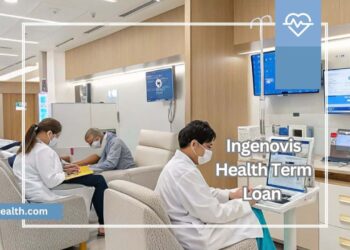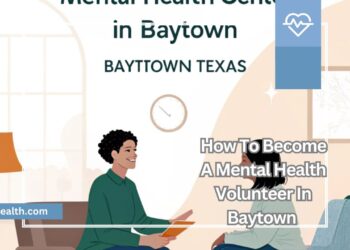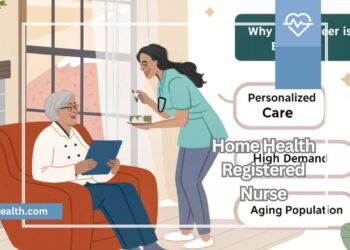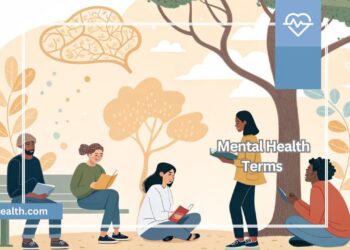When I first started looking for a Master of Arts in Clinical Mental Health Counseling (CMHC) program, I had many questions. Would it prepare me for real-world counseling? Would I get enough hands-on experience? And most importantly, would it truly help me become the kind of counselor I wanted to be? Like many others, I turned to Reddit to explore opinions, read real student experiences, and see if the University of Redlands fit me.
After going through endless Reddit threads, program reviews, and alumni insights, I took a leap of faith and enrolled in the CMHC program at Redlands. Now that I’m deep into my journey, I want to share my personal experience—what I’ve learned, what surprised me, and why I believe this program is shaping me into a competent and compassionate mental health professional.
What is an MA in Clinical Mental Health Counseling?
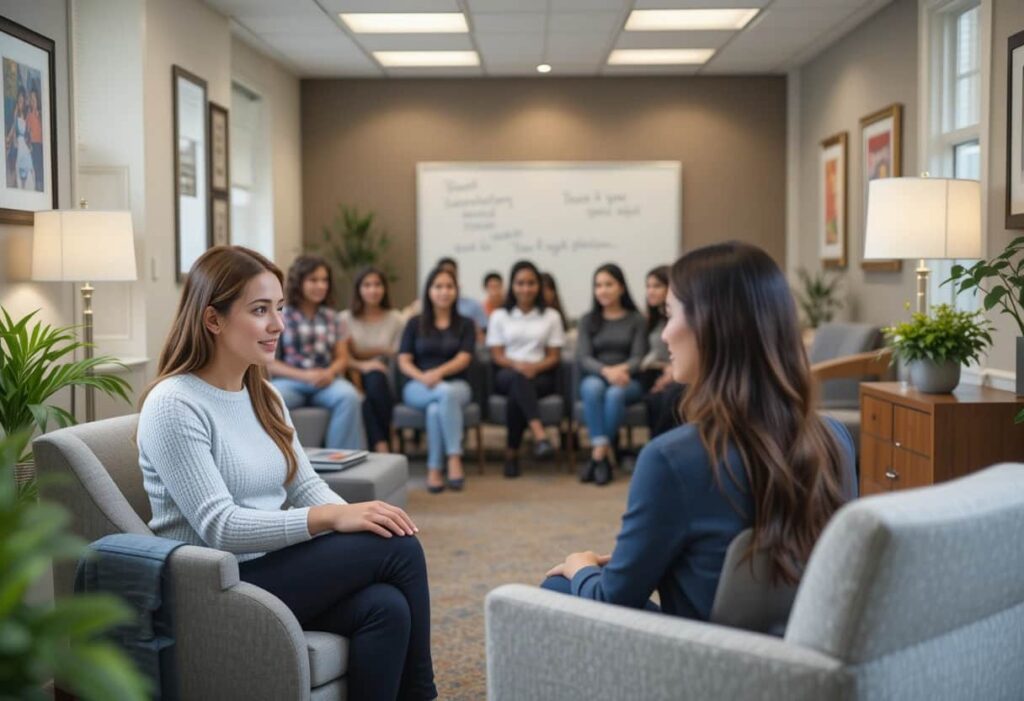
A Master of Arts in Clinical Mental Health Counseling (CMHC) is a graduate-level program that equips students with the knowledge, skills, and ethical foundations needed to become licensed mental health professionals. This degree focuses on addressing mental health challenges through counseling, advocacy, and social justice.
Graduates are prepared to work in diverse settings, including private practices, schools, hospitals, and community organizations.CMHC program at Redlands is particularly renowned for its emphasis on social justice and cultural competency, ensuring that students are well-prepared to serve diverse populations.
Why I Chose the MA in Clinical Mental Health Counseling at Redlands?
Deciding to pursue a Master’s in Clinical Mental Health Counseling wasn’t just about getting a degree—it was about preparing myself to help people in meaningful ways. I looked at different programs, from state universities to private institutions, but Redlands stood out to me for a few key reasons:
A Strong Focus on Social Justice and Advocacy:
One thing that kept coming up in my research (and on Reddit!) was how Redlands integrates social justice into their counseling education. I didn’t want just a technical education; I wanted to develop a deep understanding of diverse communities, systemic barriers, and ethical mental health practices.
This program actively encourages discussions about race, gender, cultural competency, and inequality, making sure future counselors are prepared to support all kinds of clients.
Preparation for Licensure (LPCC and LMFT Options):
Many Redditors emphasized how important it is to choose a program that meets licensure requirements. At Redlands, the CMHC program prepares students to become Licensed Professional Clinical Counselors (LPCCs) in California.
Plus, if you want to specialize further, you can take courses that help you qualify for the Licensed Marriage and Family Therapist (LMFT) licensure. This flexibility was a huge selling point for me.
A Balance Between Theory and Practical Experience:
A lot of counseling students worry about not getting enough hands-on experience before they graduate. Redlands structures the program in a way that gives students both strong academic knowledge and practical application.
From day one, you’re not just learning theories—you’re developing counseling skills through role-play, case studies, and real-life practice. The program also includes a structured field experience, ensuring that by the time you graduate, you’ve already worked directly with clients.
What It’s Really Like Studying at Redlands – My Personal Experience!
The First Semester: Overcoming Self-Doubt!
I remember walking into my first class feeling a mix of excitement and imposter syndrome. Would I be good enough? Did I make the right choice? But within the first few weeks, I knew I was in the right place.
- The professors were supportive, approachable, and incredibly knowledgeable.
- My classmates were just as passionate about mental health as I was, which created a great learning environment.
- The coursework was challenging, but every assignment had a real-world application, which made learning feel meaningful rather than just theoretical.
One of the first things we learned was active listening and empathy-building exercises. It sounds simple, but truly understanding how to hold space for someone’s emotions without judgment was harder than I expected. These foundational skills set the stage for everything that followed.
Internships and Field Experience – The Real Test!
By the second year, we were required to complete internship hours in a real counseling setting. This was both terrifying and exciting. I was placed at a community mental health center, where I worked with clients facing anxiety, depression, and trauma.
At first, I was nervous about leading therapy sessions, but the Redlands faculty made sure we were well-prepared before stepping into the real world. They provided:
Regular supervision and feedback to help us improve.
Ethical training and cultural competency workshops to navigate sensitive cases.
Opportunities to specialize in areas like child and adolescent intervention or marriage and family therapy.
It was during this time that I realized just how much I had grown. The nervousness I felt in my first class had transformed into confidence, and I found myself deeply connecting with clients, helping them navigate their struggles.
What Surprised Me the Most About the Program?
Even after reading Reddit threads, university websites, and student testimonials, there were a few things I didn’t fully grasp until I was in the program:
- Personal Growth: I expected to learn counseling techniques, but I didn’t expect to change as a person. This program challenges you to reflect on your biases, improve your emotional intelligence, and become a better listener—skills that help in both professional and personal life.
- The Support System: I’ve been in educational settings where professors feel distant, but at Redlands, the faculty genuinely cares about your success. They are mentors, not just instructors.
- The Emotional Toll: Counseling is emotionally demanding, and there were times I felt drained after working with clients. But Redlands prepares students for this, teaching us how to practice self-care and maintain healthy boundaries.
Also read: What Are Devoted Health’s Core Ingredients – Transforming Healthcare For Older Americans!
Specializations in the CMHC Program at Redlands:
Marriage and Family Therapy (LMFT):
This specialization focuses on relationship dynamics, family systems, and therapeutic interventions for couples and families. Students learn evidence-based approaches to address communication issues, conflict resolution, and emotional well-being. Graduates can pursue licensure as Licensed Marriage and Family Therapists (LMFT) and work in private practice, clinics, or community mental health centers.
Child and Adolescent Intervention:
This track prepares students to work with children and teens, addressing challenges like developmental disorders, trauma, anxiety, and school-related issues. Students gain expertise in behavioral interventions, counseling techniques, and family collaboration. Graduates can work in schools, child welfare agencies, and youth mental health programs, supporting young clients’ emotional and psychological development.
What Reddit Users Say About the MA Clinical Mental Health Counseling Program at Redlands?
Discussions on Reddit about the MA Clinical Mental Health Counseling Redlands program often highlight the following:
- Positive Experiences: Many students praise the program’s supportive faculty and emphasis on social justice.
- Career Preparation: Graduates appreciate the program’s focus on licensure and practical skills.
- Community Feel: The small class sizes and collaborative environment are frequently mentioned as key benefits.
However, some users note the program’s intensity and the need for strong time management skills.
Career Opportunities for CMHC Graduates:
Graduates of the MA in Clinical Mental Health Counseling program at Redlands are prepared for diverse roles in the mental health field. With increasing demand for qualified counselors, this degree opens doors to various career opportunities.
| Career Path | Description |
| Licensed Professional Clinical Counselor (LPCC) | Provides therapy and mental health support to individuals, groups, and families in various clinical settings. |
| Marriage and Family Therapist (LMFT) | Specializes in helping couples and families navigate relationship challenges, emotional issues, and conflict resolution. |
| School Counselor | Supports students’ emotional, social, and academic well-being, working in elementary, middle, and high schools. |
| Substance Abuse Counselor | Assists individuals struggling with addiction by providing counseling, intervention, and recovery support programs. |
| Mental Health Advocate | Works to raise awareness, create policies, and support individuals with mental health challenges through outreach and education. |
Future Career Opportunities for CMHC Graduates:
The future for CMHC graduates from Redlands is filled with expanding career opportunities in clinical counseling, family therapy, school mental health, and substance abuse recovery. With growing awareness, LPCCs will take on roles in teletherapy, trauma counseling, and crisis intervention, while LMFTs will address evolving family dynamics.
School counselors will implement mental health technology, and substance abuse counselors will lead holistic rehabilitation programs. Additionally, mental health advocates will drive policy reforms and awareness campaigns, ensuring better accessibility and support for mental health services.
FAQS:
1. How does the CMHC program at Redlands integrate social justice into counseling education?
The program emphasizes cultural competency, ethical counseling practices, and advocacy for underserved communities. Courses include diversity training, systemic inequality discussions, and real-world case studies, ensuring graduates can support clients from varied backgrounds with empathy and understanding.
2. What hands-on experiences will I gain during the CMHC program?
Students participate in role-playing exercises, supervised counseling sessions, and clinical internships. Field placements in community mental health centers, schools, and rehabilitation clinics provide real-world experience, helping students develop practical skills and confidence before entering professional practice.
3. Can I specialize in multiple areas within the CMHC program?
Yes, students can tailor their education by choosing a specialization in Marriage and Family Therapy (LMFT) or Child and Adolescent Intervention. Some students take additional coursework to qualify for both LPCC and LMFT licensure, broadening their career opportunities.
4. What career paths are available beyond traditional counseling roles?
Besides becoming an LPCC or LMFT, graduates can work in corporate wellness programs, mental health advocacy, policy development, crisis intervention, and research. The growing focus on mental health means opportunities are expanding in schools, hospitals, non-profits, and teletherapy platforms.
5. How does Redlands prepare students for the emotional challenges of counseling?
The program includes self-care strategies, supervision, and peer support networks to help students manage the emotional toll of counseling. Professors emphasize healthy boundaries, stress management, and reflective practice, ensuring students are mentally prepared for their future roles as counselors.
Conclusion:
The MA in Clinical Mental Health Counseling program at Redlands is more than just a degree—it’s a transformational journey that prepares students for meaningful careers in mental health. With its strong focus on social justice, hands-on experience, and expert faculty support, it shapes graduates into skilled and compassionate counselors.
From internships and specializations to personal growth and career readiness, this program provides a well-rounded education that equips students to make a lasting impact in the field. If you’re looking for a program that prioritizes real-world preparation, advocacy, and professional development, Redlands is an excellent choice.




